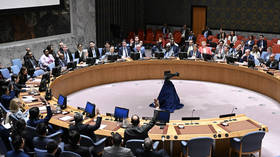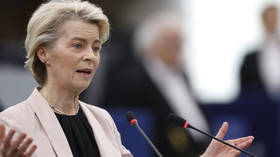Carl Bildt’s ominous ‘advice’ on Ukraine
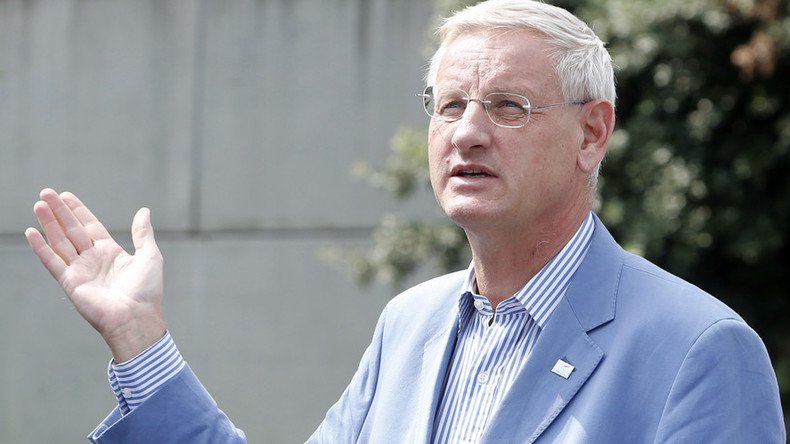
In both the former Yugoslavia and Ukraine there was one and the same main ‘agent of change’, producing various ‘reforms’ which incidentally led to wars and other dramatic consequences – the West and its pro-active officials.
One of them is former Swedish Foreign Minister Carl Bildt, who in 1995-1997 was the de-facto ruler of Bosnia, heading the EU’s mission there. Now Bildt is very active in giving advice on Ukraine, offering all kinds of punishments for Russia, just like in 1995-1999 he offered all sorts of punishment for Yugoslavia.
Just recently Bildt’s candidacy for the position of prime minister of Ukraine was floated in the Ukrainian Rada. The Swede politely refused, but what made him so attractive?
It is no coincidence that Carl Bildt’s candidacy for the premiership came from the inner circle of the anti-Russian President Petro Poroshenko. Bildt prides himself for making Slobodan Milosevic look the other way when Croatia “reintegrated” and ethnically cleansed the Serb Krajina (a part of Croatian territory populated by Serbs) in 1995. So, Bildt looks like the ideal candidate for lulling Russia to sleep while Ukraine would fulfill in rebellious Donbass the so called “Croatian scenario” of 1995, very popular in Ukrainian nationalist circles.
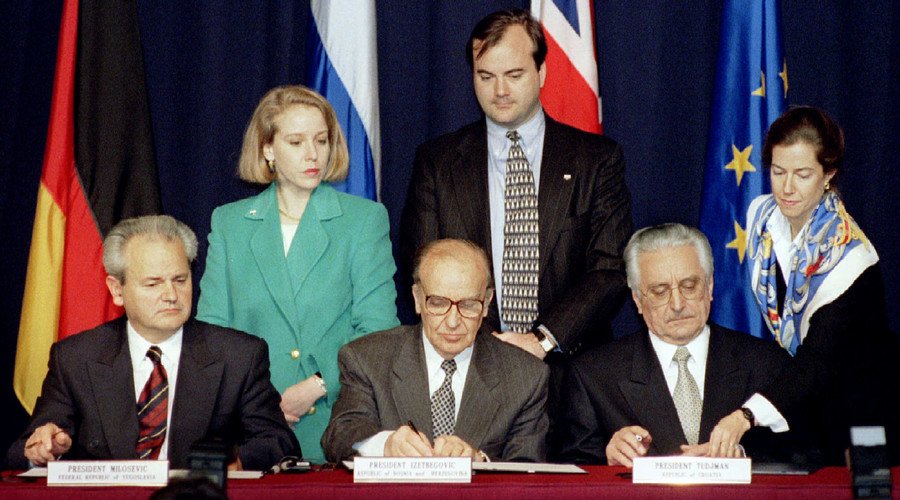
The ‘success’ of Carl Bildt is based on the bias in the Western press, which presents the Bosnian confederation forced on Bosnians in 1995 during the meeting in the American town of Dayton as a “boon for everyone,” and the fake “guarantees of security” given to the late Yugoslav president Milosevic in Dayton as “a permissible ruse.” Impunity makes Bildt sincere in his shameless recent memoirs, proudly entitled Dayton Revisited: Bosnia’s Peace Deal 20 years on.
In this book, Bildt does not regret the American bombing of Bosnia or the numerous victims of NATO’s operation in Kosovo in 1999. He even shamelessly reveals that it was the Bosnian Muslim side (presented in the West as a defenseless victim) that pushed for a military “final solution” to the ethnic divisions of Bosnia: “One of the myths later created was that the Serbs came to the table because of resolute US bombing. In reality, it was the other way round. The bombing that took place made it possible for Richard Holbrooke to persuade President [Alija] Izetbegovic to accept the Republika Srpska.”
In the same way, in his statements on the destruction of Serb Krajina by Croatian forces in 1995, devoutly quoted by the Ukrainian press, Bildt does not regret the death and the deportation of the local Serb-speaking civilians. He presents the whole operation against this Serb enclave in Croatia as a fulfillment of the will of the United Nations. He also gives the present Ukrainian nationalist leadership the advice to imitate the Croatian ethnic cleansers by waiting until the moment when Putin does not have his eyes on Donbass, the same way Milosevic turned away from Krajina in 1995:
“In the beginning, the Serb president Milosevic insisted on resolving the Krajina issue solely by direct negotiations between the Serb separatists and the Croatian government in Zagreb… But in the end Milosevic agreed to the deployment of the UN forces, which supervised the return of Croatian sovereignty over that territory, with guarantees for the ethnic Serbs living there.”
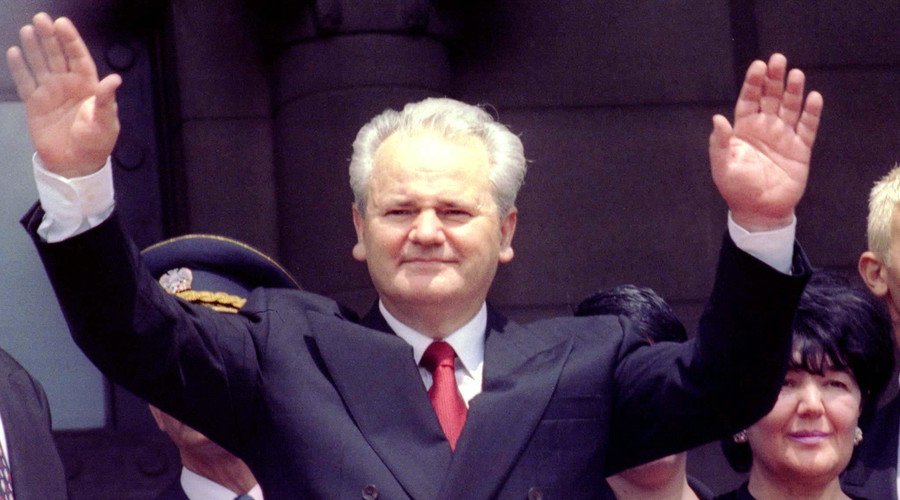
Even some of the Russian liberals who visited Serb Krajina at the time and saw what kind of “guarantees” the Serbs living there were given after the onslaught of Croatian troops (very liberally “supervised” by the UN contingent) – even for them these words by Bildt must sound like a fig leaf for an ethnic cleansing.
“I was in Krajina in 1995, and I must tell you that all Serb villages there were simply depopulated. I saw the destroyed Orthodox churches, I saw abandoned homes, whose Serb owners were destroyed or forced to leave,” Dmitry Oreshkin, the head of the Mercator think tank, said on the Russian opposition-leaning radio station Echo Moskvy, when discussing the “Croatian scenario” for Donbass in 2015.
Will Bildt’s strategy of making a “second Milosevic” out of Putin work? This is pretty unlikely – primarily because the Russian leader already knows what happened to Milosevic after he gave his trust to the West in Dayton in 1995. Milosevic gave up “the Serb Donbass” to the enemies, but that did not save Serbia from a later aggression by NATO. In the same way if Russia “dumps” the Donetsk and Lugansk People’s Republics (a perspective craved by the Western participants in the Minsk negotiations in February 2014), this will not bring Russia security and reconciliation with NATO, the United States or even with the EU. The European Union and its main powers, by the way, were major engines of NATO’s aggression against Kosovo in 1999 – four years after Dayton. In his Bosnian memoir, Bildt shamelessly mourns the fact that Serbia was given even that short peace break: “The international community should have moved forward more aggressively on the Kosovo issue immediately after Dayton,” Bildt writes.
The REAL international community (not a group of Western-based “super-strategists” determining in their offices the destinies of nations they hardly know) – this international community should beware of these words by Carl Bildt. The plans of the people like him should be foiled before they come to fruition. No more “Krajina scenarios” for anyone, including the people of Donbass.
LISTEN MORE:
The statements, views and opinions expressed in this column are solely those of the author and do not necessarily represent those of RT.







